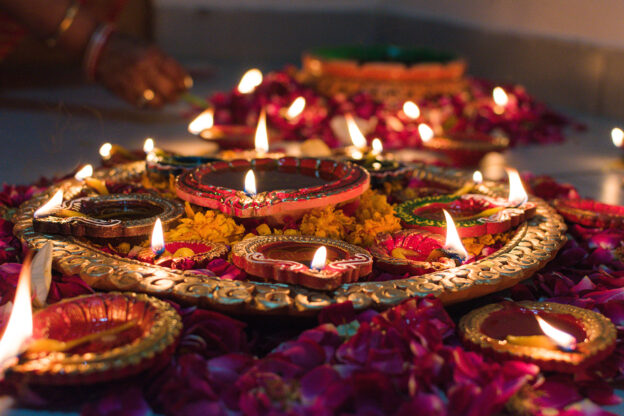
(RNS) — A native Pennsylvanian, I remember what it was like for my family to celebrate Diwali (or Deepavali, as it is also known for people of South Indian descent) at a time when Hinduism and other dharmic faiths were considered foreign and exotic religions.
In the 1980s, my family would perform a small puja at home on Diwali. We never mentioned that we were celebrating a religious holiday, despite Diwali’s significance to not just a billion Hindus, but to Jains, Sikhs and some Buddhists as well. We celebrated in the shadows, afraid of not being considered “American” because of Diwali’s foreignness, which only added to the stigma of growing up Hindu back then.
That’s why, when Pennsylvania Gov. Josh Shapiro signed Senate Bill 402, recognizing Diwali as a state holiday, last week, it was a long overdue acknowledgment of not only the presence of Hindus and followers of other dharmic faiths in Pennsylvania, but the contributions they have made, to the state and America as a whole. State Sen. Nikil Saval and state Rep. Arvind Venkat, who sponsored the bill in their respective chambers at the Statehouse, were there to see Shapiro sign it into law, along with Montgomery County Commissioner Neil Makhjia.
Pennsylvania’s recognition of Diwali follows in the footsteps of other states, such as New Jersey, New York, California and Texas, which have made similar efforts to recognize followers of dharmic faiths.
While Pennsylvania’s government won’t close on Diwali’s first and most important day, which this year falls on Thursday, its inclusion as a state holiday means that Hindu parents no longer have to defend taking their kids out of school in areas where the holiday isn’t already observed. A growing number of school districts in Pennsylvania (including my own alma mater, North Penn) already close for Diwali, signaling the important shift in recognizing Hindus as fellow Americans.
Diwali is commonly known as the festival of lights, though the holiday has multiple meanings and celebrations. The most widely commemorated by Hindus and non-Hindus is the return of Lord Rama from exile in the Hindu epic the Ramayana. The Sikhs’ celebration, known as Bandi Chhor Divas, marks the 17th-century release of Sikh Guru Hargobind and 52 Hindu kings who had been imprisoned by Mughal Emperor Jahangir for refusing to convert to Islam.
Beyond the symbolism of these bills and proclamations, there is the long overdue feeling of being seen. For years, I was bullied for being a Hindu, and a number of my peers (fellow Gen Xers) shied away from the religion so as to not be seen as foreign. My wife and I have vowed to raise our son Hindu in a manner in which he can proudly and comfortably feel connected to both our faith and our Americanness.
Our son’s teachers have asked my wife to make a presentation this week on Diwali, which was a welcome surprise. On Thursday, we’ll do a small puja, light the diyas (candles) celebrating Lord Ram’s return and then go trick-or-treating. Blending those celebrations together speaks to how far we’ve come from the days I had to hide who I was.
(Murali Balaji is a journalist and a lecturer at the Annenberg School for Communication at the University of Pennsylvania. The views expressed in this commentary do not necessarily reflect those of RNS.)
